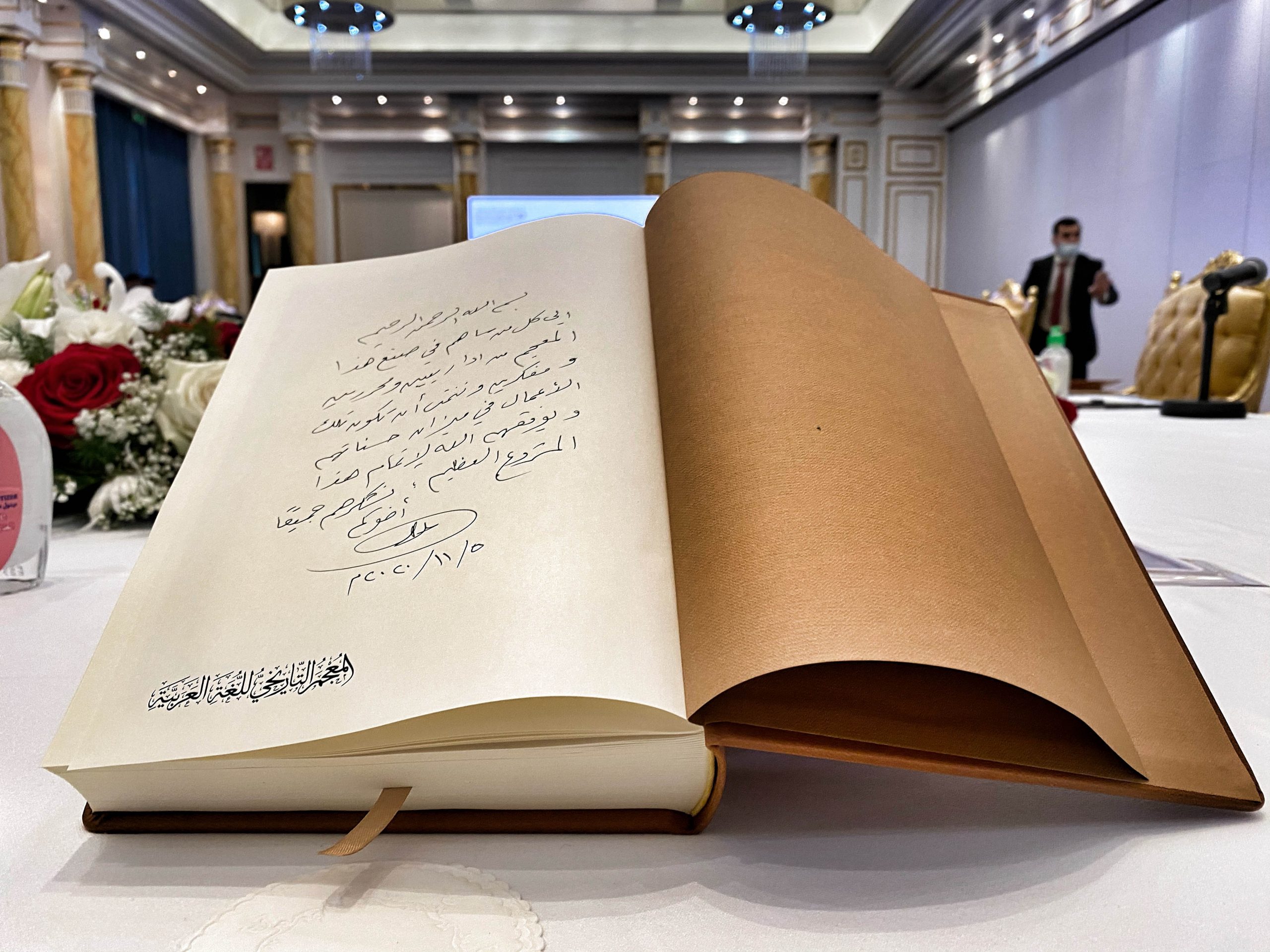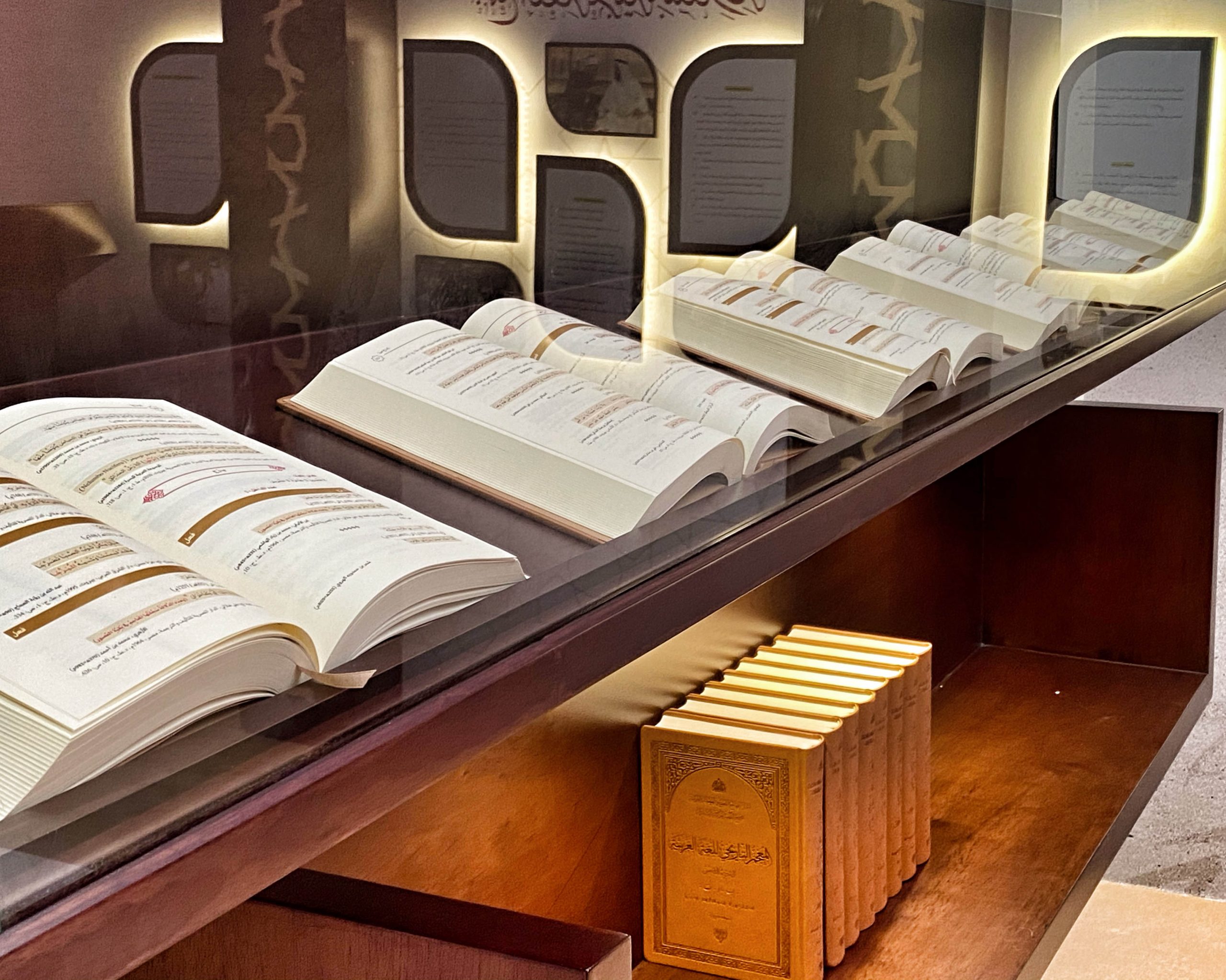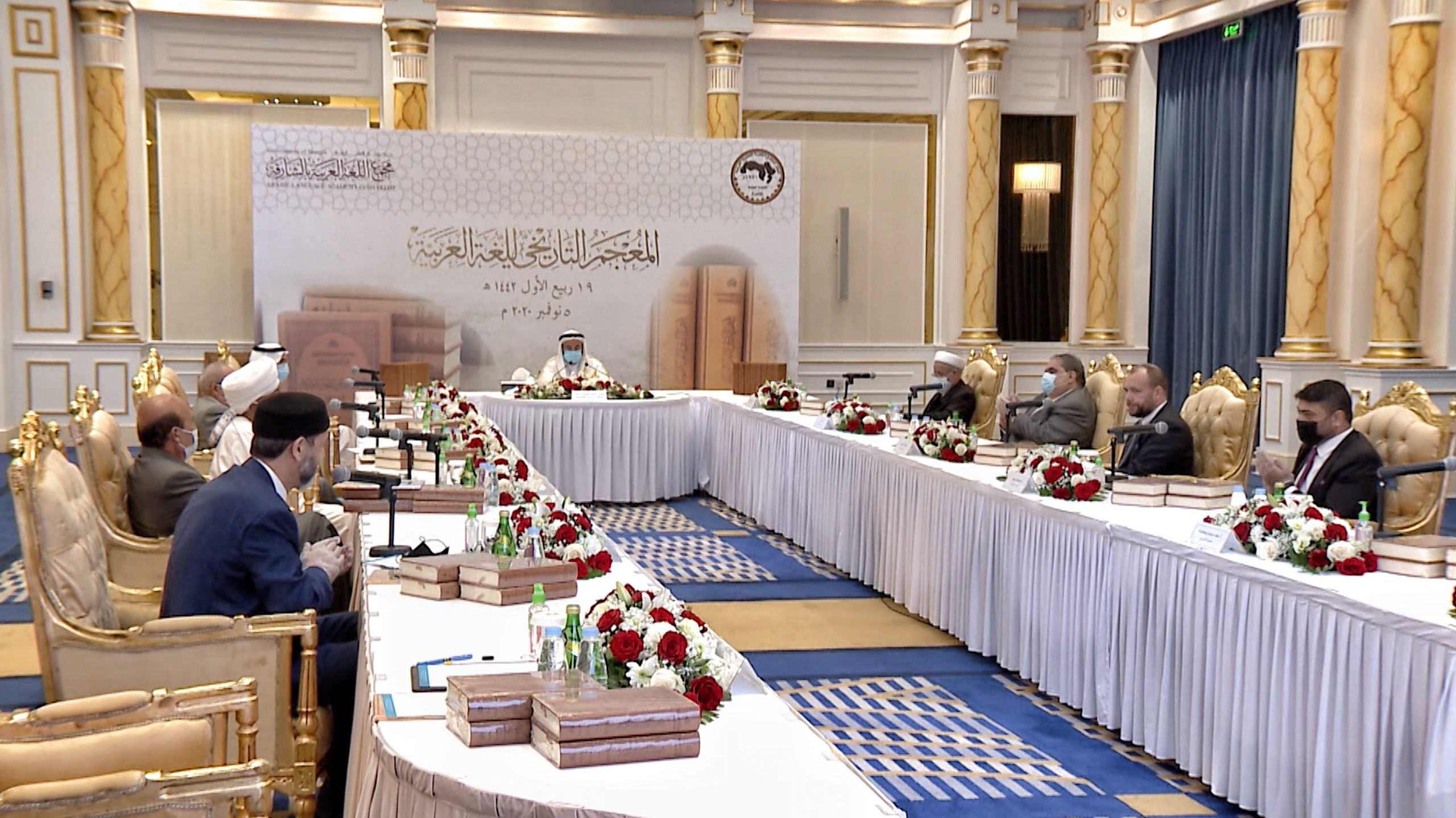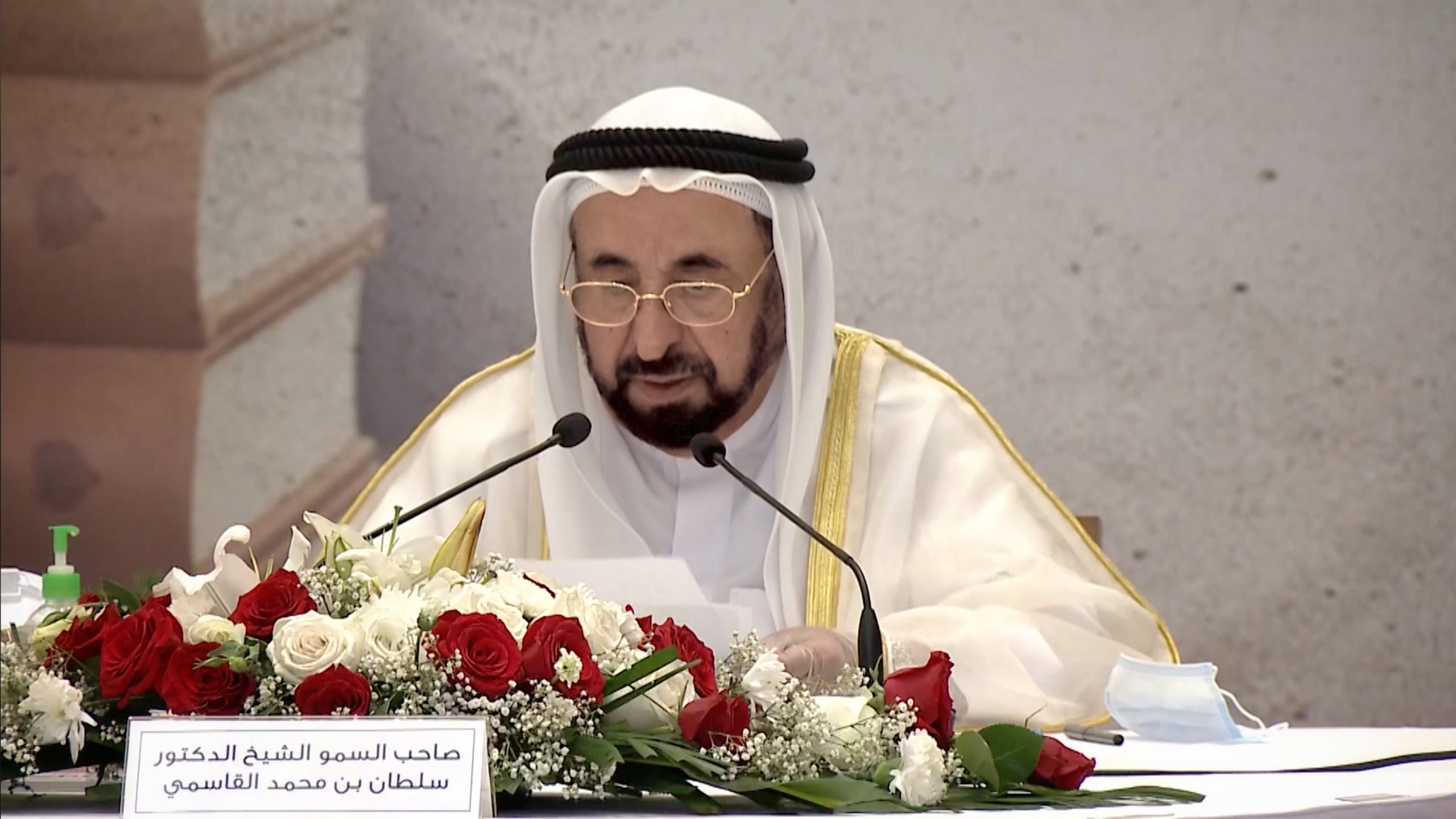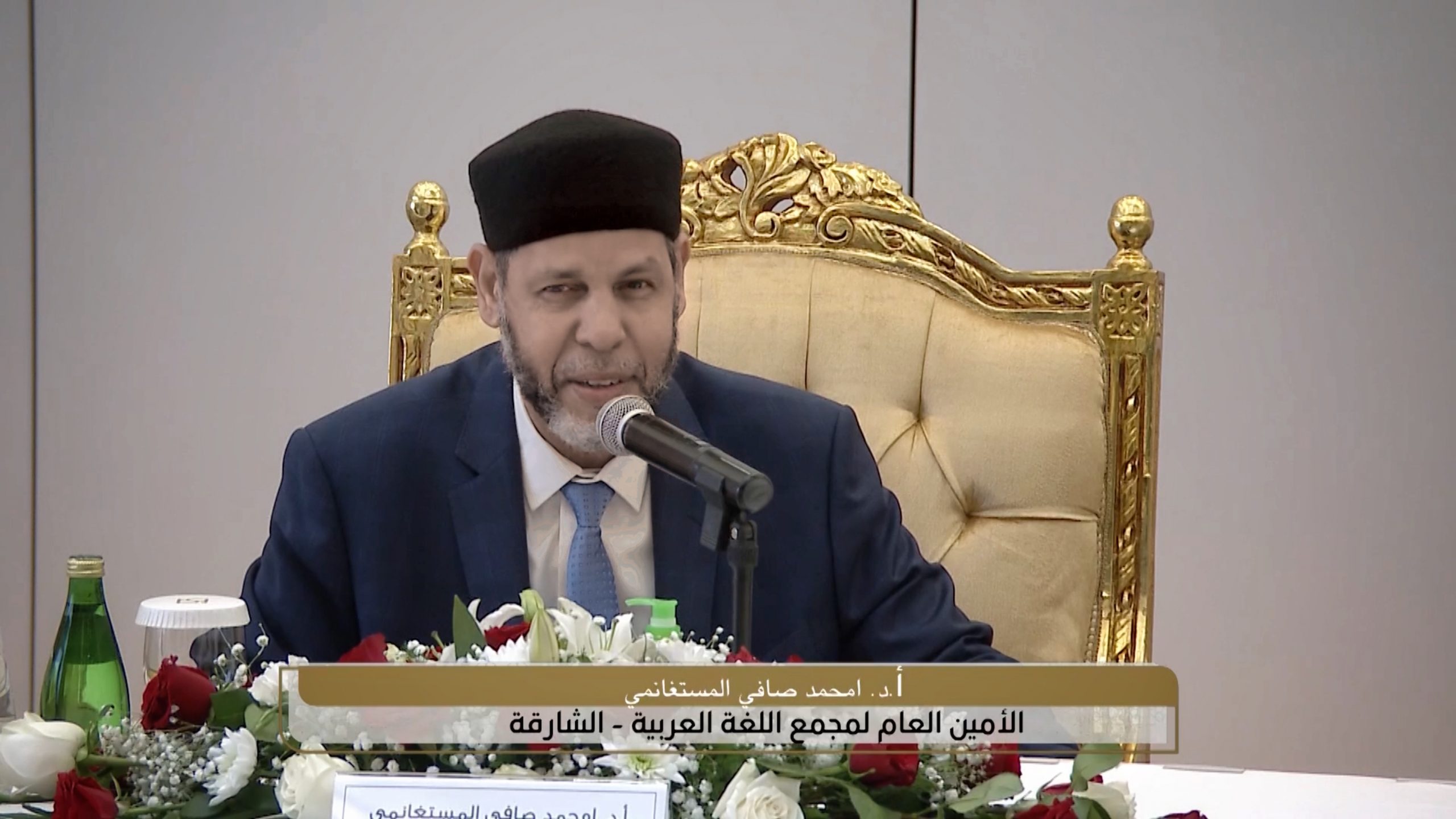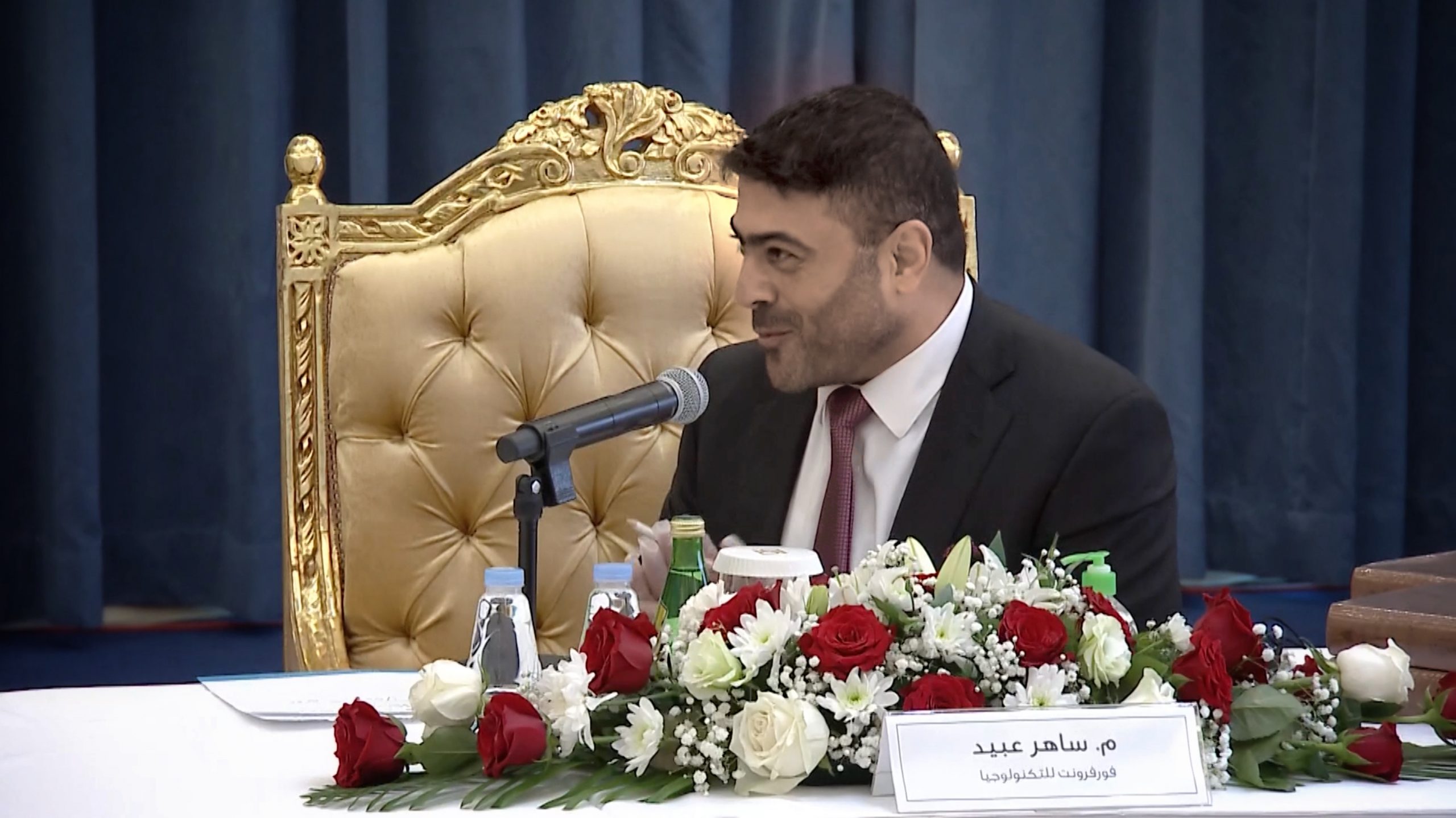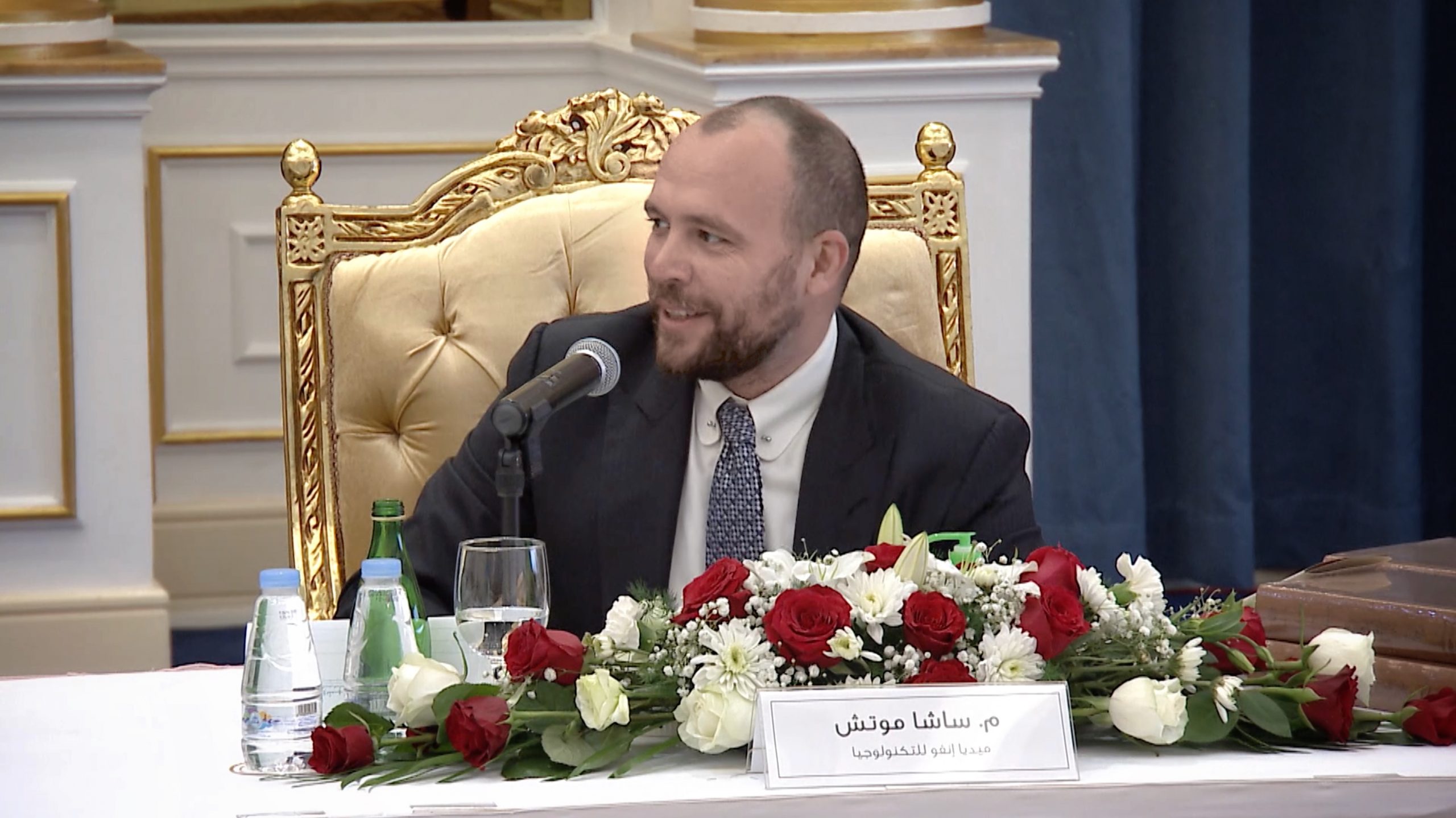His Highness Sheikh Dr. Sultan bin Muhammad Al Qasimi, Member of the Supreme Council and Ruler of Sharjah, released the first eight volumes of the Historical Corpus of the Arabic Language at the 39th Sharjah International Book Fair on 5th of November 2020. The first-of-its-kind project chronicles 17 centuries of development of the Arabic language that span five distinct periods in history from the pre-Islamic period to Islamic era, Abbasid Caliphate, development of nation states, and the modern day.
The corpus will provide a detailed documentation of word roots, derivatives and phonetic variations. The history of every derivative word will be traced back to first known usage since the pre-Islamic times until present day. What makes the corpus unique is its focus on the use of living language, and cites usages in quotes from the Holy Quran, the Hadith as well as from poems, speeches, letters and other sources.
Attempts to record the development of the Arabic language date back to 1936 but was stalled shortly after the completion of some of the entries of the first letter (hamzah). With the release of the books, Sharjah has become the first city in the world to realise more than 80 years of studies.
Sheikh Sultan said: “On this blessed day, I would like to tell the united Arab and Muslim nation: Congratulations! The corpus’s first eight volumes covering the first two letters of the alphabet, are published. And we promise you that, in the next few years, we will be publishing dozens of volumes that will enable Arabic language learners, enthusiasts and scholars enjoy the largest linguistic repository ever developed.”
“This project has been on my mind for a long time, and my keenness to support it increased when I learned that the previous attempts could not see success for various reasons. To succeed in our efforts was what I asked for in my prayers to Allah, and I am still praying, seeking divine guidance for the successful completion of this enormous project.”
“Praise be to Allah, we were able to successfully overcome all the hurdles and challenges this project faced. What was a dream, a wish, 80 years ago has become a global reality, thanks to the generousity of Allah and the undeterred perseverance of sincere scholars who worked on the project,” the Sharjah Ruler continued.
Sheikh Sultan also thanked Arab researchers and scholars. “I would like to sincerely thank every single person part of the Historical Corpus of the Arabic Language project, particularly Dr. Hassan El Shafei, Chairman of Union of Arab Scientific Language Academies, and all other linguists and scholars at the union. Thank you, all members of the Scientific Council, and my sons and daughters – editors, linguists and experts – working in the Arabic Language Academy’s Executive Committee. May Allah grant you the best reward,” he said.
The first eight volumes document the origin of the first two Arabic letters – hamzah and ba from the pre-Islamic period, the Islamic era from 1 AH to 132 AH, the Abbasid Caliphate from 133 AH to 656 AH, the development of nation states from 657 AH – 1213 AH, and the modern-day era from 1214 AH to present day. The volumes trace the development of Arabic words used through the centuries, documents the entry of new words into the lexicon, and also lists words no longer in use explaining the reasons for it. It also details semantic changes, progression, development, or drift, whether through Arabic speakers or speakers of other Semitic languages such as Hebrew, Akkadian, Syriac, Abyssinian, and others, that have influenced the Arabic language.
Dr Mamoun Wajeeh, scientific manager of the project, said the preparatory period for the development of the corpus took over two years. Hundreds of senior researchers and linguists, editors, and experts from 10 Arabic language academies across the Arab world have collaborated on the project. Under the supervision of the Union of Arab Scientific Language Academies in Cairo, Egypt, and with the Arabic Language Academy in Sharjah managing the project’s executive committee, the team is working to finish the entire corpus within an estimated timeframe of six years.
The Historical Corpus of the Arabic Language used a database of sources collected and digitised over number of years. Apart from printed volumes, the project is also digitising tens of thousands of Arabic books, manuscripts, sources, and historical documents, including old inscriptions and archaeological finds, dating back to the third century before Islam.
MediaINFO Digital Library was the base technology on top of which major custom development modules and interfaces were built to enable international teams of linguistic experts and researchers from ten countries to analyze and document the detailed development of Arabic Language through history.
We are proud that MediaINFO Digital Library engine has again proved to be able to cater even to the biggest projects, allowing production time to be cut from long decades to merely few years.
About Arabic Language Academy
The academy to preserve the Arabic language is set in Sharjah. It was formed after a decree by Dr. Sheikh Sultan bin Mohammed Al Qasimi, Ruler of Sharjah. It will focus on maintaining Arabic language by keeping it relevant to sciences, technology, literature and arts. It will aim to revive and document Arab and Islamic heritage, and encourage books to be published in Arabic.
About MediaINFO
MediaINFO is a complete software solution for intuitive viewing, browsing, searching, cataloguing and sharing digitized content.
MediaINFO is powering some of the world’s most prestigious libraries, publishers, educational & governmental institutions, and magazines. It helps organizations utilize and re-use their content more effectively by leveraging past investments in content and re-purposing them for new audiences over a local network or the internet. MediaINFO Digital Library software is developed by Geneza.

